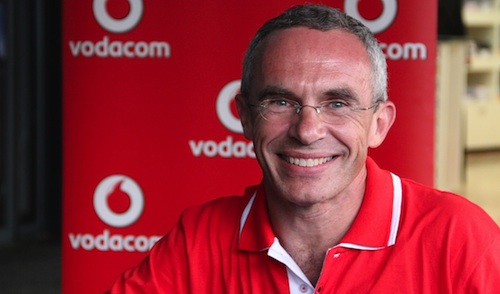
Vodacom is planning to cut its mobile broadband tariffs soon to ensure its products remain competitively priced.
Group CEO Pieter Uys admits Vodacom’s “general data tariffs” — those outside special offers — need to be adjusted. “At that level, we are not 100% competitive, and there will be movement around tariffs in general.”
Though Uys is reluctant to put a specific date on the announcement of new tariffs, he says the company is working hard to ensure the network is ready to cope with increased demand from subscribers.
That includes putting in its own fibre-optic transmission infrastructure to its base stations and lessening its reliance on leased circuits from Telkom.
The mobile data market has become more competitive in the past year, with Cell C introducing special offers that many industry executives believe are not sustainable in the short term.
However, both Vodacom and MTN recently reacted to Cell C’s promotion of 2GB of data and a modem for R149/month with similar special offers of their own. Vodacom, for example, is offering a dongle and 2GB of data, with another 2GB that can be used late at night.
“Two new competitors came into market last year. One launched with a very attractive promotion. We didn’t follow initially but there has been more and more pressure and questions asked [of us],” Uys says. “In the end, competition forces you to ensure you are competitive.”
However, consumers shouldn’t expect a dramatic reduction in general data tariffs to the levels being offered as part of special deals, Uys cautions.
TechCentral believes an analysis of Cell C’s data tariffs provide insight into the quantum of the reduction that consumers may be able to expect from Vodacom.
Cell C charges R150 for 500MB of data, or 30c/MB. Vodacom’s equivalent product costs R185, or 37c/MB. Vodacom’s product is therefore 23% more expensive.
When it comes to larger bundles, Cell C fares even better. A 3GB bundle from Cell C costs R400 (13c/MB) against Vodacom’s R565 (18c/MB), making the latter’s product 41% pricier.
Uys says Vodacom’s tariff models are built around the radio frequency spectrum it has access to and projected demand for data services. “Into that we have built tariff declines, increased usage and good elasticity on data,” he says. By elasticity, Uys means increased usage from consumers as prices fall, helping to offset at least partially a fall in revenue.
He says it’s not possible simply to cut data prices in half given the load on the network. “You can’t just take what you have and make it bigger,” he explains. “At some point you have to build more sites and reduce site sizes, requiring an incremental increase in investment.
“If we halve the tariffs today on data, the quality [of the network] will go out of the window. The networks just cannot support it.”
Uys says the business model for data will continue to deliver returns for Vodacom, but only if it builds its own transmission infrastructure and continues to cut costs and improve efficiencies. Already, it’s invested in a number of new submarine cable systems and is working with rivals MTN and Neotel to build a national backhaul network that links the country’s towns and cities.
It’s also extending its own fibre to its base stations to lessen its reliance on Telkom.
“At the moment, if I put more capacity through the sites, I have to order more [lines] from Telkom,” he says. “However, if we put in our own transmission, it’s a once-off capex layout. That link is so big you’ll never have to put in more capacity, so whatever load you throw at it there’s no congestion. It makes this whole commercial model around data work.”
However, Uys says it’s crucial operators like Vodacom get access to more spectrum, especially in the coveted 2,6GHz band, so they can keep up with surging demand, especially in metropolitan areas. The Independent Communications Authority of SA is meant to auction off access to the band later this year. — Duncan McLeod, TechCentral
- Subscribe to our free daily newsletter
- Follow us on Twitter or on Facebook




